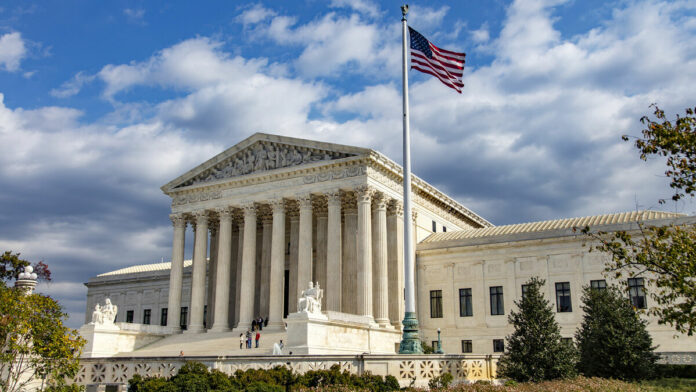(USA Herald) – The US Supreme Court is set to consider a long-standing issue in maritime law as it hears a dispute over whether a Pennsylvania federal court was correct to apply New York law in a yacht insurance case. The case involves Great Lakes Insurance SE, which is seeking a declaration that it does not owe coverage to Raiders Retreat Realty Co. LLC. This is because the fire extinguishers on the company’s yacht did not meet the insurer’s standards.
The Supreme Court’s decision to take up the case offers the justices the chance to address two of the most well-established high court rulings in the maritime space, according to legal experts. The court will limit its review to the question of whether a choice-of-law clause in a maritime contract can be voided under federal admiralty law if enforcement would contravene “strong public policy” of the state whose law is displaced.
In answering that question, the Supreme Court will have an opportunity to examine two Supreme Court cases that have shaped maritime law for several decades. The Bremen v. Zapata Off-Shore case, for instance, held in 1972 that under federal admiralty law, a forum-selection provision is unenforceable if enforcing the clause “would contravene a strong public policy of the forum in which suit is brought.”
The case in question stems from Raiders’ yacht running aground in 2019, sustaining damage worth $300,000. A claim was made with Great Lakes, but the insurer denied the claim on the basis that Raiders had misrepresented the status of the fire extinguisher system required by the policy. The insurer determined the claim was void even though it had nothing to do with fire. Great Lakes then sued Raiders in Pennsylvania federal court in September 2019, seeking a declaratory judgment that it did not have to cover the damage.
Raiders filed counterclaims alleging bad faith and violations of Pennsylvania’s Unfair Trade Practices and Consumer Protection Law. However, a dispute over governing law ensued, and the district court held that the case would be decided by New York state law, as Great Lakes had requested. On appeal, Raiders argued that Supreme Court precedent in the Bremen case said forum-selection clauses are unjust if they go against the public policy of the state where the suit is filed.
In an opinion published in August, the Third Circuit revived Raiders’ argument that the choice-of-law provision in its marine insurance policy with Great Lakes should be unenforceable under the Supreme Court’s ruling in Bremen. The framework established in Bremen extends to Raiders’ contract with Great Lakes, the appellate judges said, remanding back to the federal court the question of whether Pennsylvania’s public policy interest in the dispute is strong enough to negate the policy’s choice-of-law provision.
Legal experts predict that the Supreme Court’s decision could have far-reaching implications for the insurance industry, particularly in cases where insurers are accused of bad faith conduct. Samuel Lopez, a legal news contributor for USA Herald, suggests that the court’s current composition, which leans towards states’ rights, could have a significant impact on the outcome of the case.
The case also raises questions about the application of Wilburn Boat Co. v. Fireman’s Fund Insurance Co., a 1955 Supreme Court case that held that maritime contracts, including insurance, are governed by federal admiralty law when there is an established federal rule, but that state law applies in the absence of a federal rule. One of those established federal rules favors upholding choice-of-law provisions in marine insurance contracts as long as there’s no evidence that its enforcement “would be unreasonable or unjust.”
Given the significance of the case, legal experts expect a lot more amicus submissions from insurance companies looking to have the Supreme Court discuss the Wilburn Boat case, as it has been a long time since it was last analyzed.
The case could have significant implications for insurers, who are concerned that the Supreme Court could uphold the Third Circuit’s decision and hold that state law can essentially vitiate choice-of-law provisions in a maritime contract. This could expose insurers to the laws of a state that may be pro-policyholder when it comes to bad faith.
In conclusion, the US Supreme Court’s decision to consider a dispute over yacht insurance offers an opportunity for the justices to address long-standing issues in maritime law. The case has significant implications for the insurance industry, particularly in cases where insurers are accused of bad faith conduct. The outcome of the case could also have implications for states’ rights, and insurers are concerned about the potential exposure to the laws of pro-policyholder states.
By Samuel Lopez, Legal News Contributor for USA Herald






